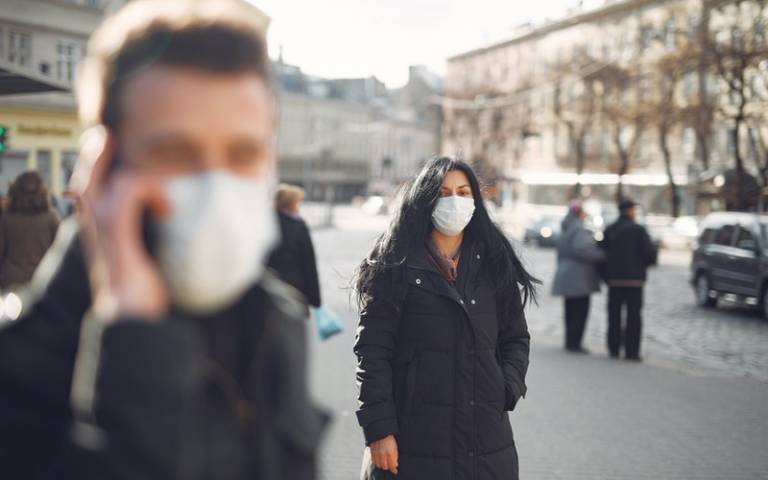UCL leads £2m international policy initiative to reduce social impacts of COVID-19
2 December 2020
UCL is leading a £2m collaboration, funded by the Economic and Social Research Council (ESRC), to better exploit the power of policy and research to help mitigate the biggest social impacts of Covid-19 and accelerate the UK’s recovery.

The International Public Policy Observatory (IPPO) is a collaboration between UCL, Cardiff University, Queens University Belfast, the University of Auckland and the University of Oxford, with leading think tanks including the International Network for Government Science (INGSA), and academic news publisher The Conversation.
Through this global network, the IPPO will give UK policymakers easy access to resources, evidence and analysis of global policy responses to COVID-19, enabling them to make better decisions on how to address the immediate social, economic and public health impacts of the pandemic.
It will focus on a broad spectrum of policy areas including education; mental health and well-being; living online; care homes and adult social care; housing, communities and cohesion; and addressing the disproportionate impacts on BAME groups. This will enable national, devolved and local UK governments to make better decisions to benefit the British public, particularly marginalised and at-risk groups.
The partnership, led by the UCL Department of Science, Technology, Engineering & Public Policy (STEaPP) and the Evidence for Policy and Practice Information and Coordinating Centre (EPPI Centre), based in UCL Institute of Education’s (IOE) Social Research Institute, will bring together experts from UCL Public Policy’s Capabilities in Academic-Policy Engagement (CAPE), the University of Oxford’s Blavatnik School of Government, INGSA and The Conversation.
Professor Joanna Chataway, Principal Investigator (UCL STEaPP) said: “The COVID-19 pandemic has created unprecedented challenges for policymakers around the world. The range and urgency of evidence they need is continuously growing, and if not easily accessible creates yet another hurdle to developing the measures we need to help society through the impacts of COVID-19.
“The IPPO will build lasting connections between policy and research experts from across the world and provide real, flexible and targeted insights on how best to address the UK’s response to and recovery from the pandemic.
“Our aim is to not just help address the pressing issues around COVID-19 but to also create a best-practice approach to connecting the worlds of policy and social science, especially during times of crisis and rapid change. Ultimately evidence needs to reach those who need it.”
Professor David Gough, Director of the EPPI centre, said: “The EPPI-Centre is honoured to be part of the ESRC's new International Public Policy Observatory. Our work on mapping and synthesizing of social science research will provide the research evidence to inform policy makers’ decision making as the world responds to the Covid-19 pandemic.”
ESRC’s Executive Chair, Professor Jennifer Rubin, said: “ESRC is proud to support this collaboration in its vital work. COVID-19 is an unprecedented challenge for those who need to make many varied and complex decisions. The IPPO will build bridges between policy and research focused on mitigating the biggest social impacts of Covid-19 and accelerating the UK’s recovery.”
To ensure it is directly addressing the UK’s most urgent policy needs, the IPPO will crowdsource key questions and topics from policymakers and the public.
It will provide regularly updated ‘Living Maps’ of evidence and policy to help cut through the vast amounts of social research and policy responses on COVID-19. This will provide a searchable database of research which is relevant to COVID-19 policy decisions and give direct access to the most up to date evidence.
Working with The Conversation, the IPPO will ensure outputs are communicated in a dynamic, accessible way via a dedicated website, including evidence briefs and systematic reviews as ongoing engagement with key policy stakeholders.
The IPPO will also undertake policy research and work with engagement leaders in the devolved administrations, including the Scottish Policy and Research Exchange (SPRE), Wales’ Social Science Park (SPARK) and Queen’s University Belfast and Pivotal, Northern Ireland’s leading policy think tank.
Professor David Price, UCL Vice-Provost (Research) said: “I am delighted that UCL will host and lead this innovative international observatory, which will act not only as an opportunity to bring together leading policy experts from across the university, but also to further connect us with our brilliant colleagues across the world.
“It is more crucial than ever that we are able to come together to address the impacts of the pandemic, as well as the climate crisis and other global challenges, and ensure that world-leading research can better inform our response, aid our recovery, and enhance our resilience.”
The IPPO is funded by a £2m, two-year ESRC grant.
Media contact
Kate Corry, UCL Media Relations
T: +44 (0)20 3108 6995
E: k.corry@ucl.ac.uk
Links
- UCL Social Research Institute
- EPPI-Centre
- Social Science Research Unit (SSRU)
- UCL Department of Science, Technology, Engineering & Public Policy (STEaPP)
- COVID-19 research at UCL Institute of Education
Image
- Image: Gustavo Fring via Pexels
 Close
Close

